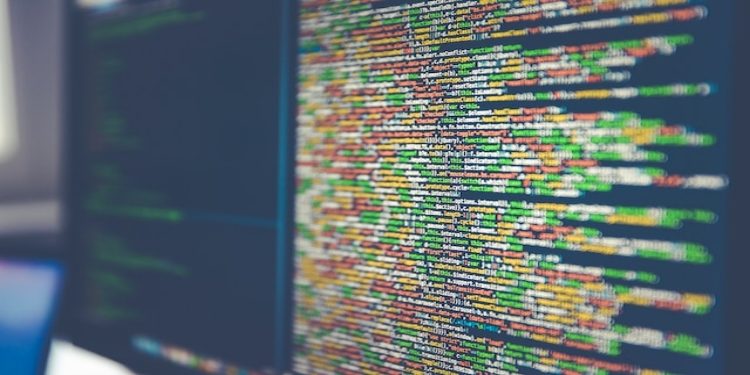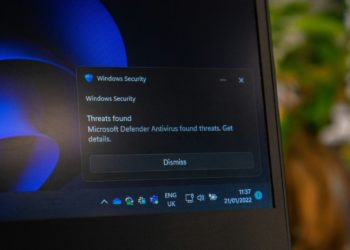In today’s digital age, where data breaches and privacy concerns are rampant, the need for robust privacy and security measures has become paramount. With the rise of decentralized environments, where data is distributed across multiple nodes rather than being controlled by a central authority, ensuring the privacy and security of user data has become even more challenging. In this article, we will explore the core aspects of privacy and security in a decentralized environment. This website https://immediaterevolution.com/ here is the key to pro trading features and many other resources and tools related to crypto trading.
The Significance of Privacy and Security in a Decentralized Environment
Understanding Decentralization
Decentralization refers to the distribution of authority and control over a network or system. In a decentralized environment, there is no central entity governing the entire network. Instead, data and decision-making power are spread across multiple nodes or participants, creating a more democratic and transparent system. While decentralization brings numerous benefits, such as increased resilience and censorship resistance, it also introduces unique challenges in terms of privacy and security.
Privacy Concerns in a Decentralized Environment
In a decentralized environment, where data is distributed across multiple nodes, ensuring the privacy of user data becomes crucial. Privacy concerns arise due to the potential exposure of sensitive information, such as personal details, financial transactions, or confidential documents. Without proper safeguards, malicious actors may exploit vulnerabilities in the system to gain unauthorized access to sensitive data, compromising the privacy of users.
Security Risks in a Decentralized Environment
Alongside privacy concerns, security risks pose a significant challenge in a decentralized environment. Since there is no central authority overseeing the entire network, it becomes vital to implement robust security measures to prevent unauthorized access, data breaches, and other malicious activities. Security risks in a decentralized environment may include vulnerabilities in the underlying protocols, smart contracts, or the nodes themselves.
Strategies for Safeguarding User Data
End-to-End Encryption
End-to-end encryption is a fundamental strategy for ensuring the privacy and security of user data in a decentralized environment. This encryption technique ensures that data is encrypted at the source and can only be decrypted by the intended recipient. By implementing end-to-end encryption, even if a malicious actor gains access to the data, it remains unreadable without the decryption keys. This strategy provides a strong layer of protection for sensitive user information.
Multi-Factor Authentication
Implementing multi-factor authentication (MFA) adds an extra layer of security to user accounts in a decentralized environment. MFA combines two or more authentication factors, such as passwords, biometrics, or security tokens, to verify the user’s identity. By requiring multiple factors for authentication, the risk of unauthorized access is significantly reduced. Users should be encouraged to enable MFA to enhance the security of their accounts and protect their data.
Regular Security Audits
Conducting regular security audits is essential to identify and address vulnerabilities in a decentralized environment. Security audits involve assessing the system’s architecture, codebase, and infrastructure for potential weaknesses or loopholes. By performing thorough security audits, any vulnerabilities can be detected early on and remedial actions can be taken promptly. This proactive approach helps in safeguarding user data and maintaining the overall integrity of the decentralized system.
Transparent Governance and Consensus Mechanisms
In a decentralized environment, transparent governance and consensus mechanisms play a crucial role in ensuring privacy and security. Transparency allows participants to have visibility into the decision-making processes and helps build trust among users. Consensus mechanisms, such as proof-of-work or proof-of-stake, ensure that malicious actors cannot manipulate the system for their gain. By employing transparent governance and robust consensus mechanisms, the overall security of the decentralized environment can be enhanced.
Ongoing Security Education and Awareness
Promoting ongoing security education and awareness is vital for both developers and users in a decentralized environment. Developers should stay updated with the latest security practices and guidelines to build robust and secure systems. Users, on the other hand, should be educated about best security practices, such as using strong passwords, avoiding phishing attempts, and being cautious while sharing sensitive information. By fostering a culture of security awareness, the risks associated with user data can be minimized. You could also choose Physical Penetration Testing, which assesses your building’s security risks from a malicious, criminal perspective.
Conclusion
As the digital landscape continues to evolve, safeguarding user data in a decentralized environment is of utmost importance. By implementing strategies such as end-to-end encryption, multi-factor authentication, regular security audits, transparent governance, and ongoing security education, the privacy and security of user data can be effectively protected. However, it is essential to acknowledge that achieving optimal privacy and security in a decentralized environment is an ongoing process that requires continuous efforts and adaptability. By prioritizing user privacy and security, we can create a safer and more trustworthy decentralized ecosystem.
David Prior
David Prior is the editor of Today News, responsible for the overall editorial strategy. He is an NCTJ-qualified journalist with over 20 years’ experience, and is also editor of the award-winning hyperlocal news title Altrincham Today. His LinkedIn profile is here.



![7 Best POS Software in the UK [2026 Edition]](https://todaynews.co.uk/wp-content/uploads/2026/02/7-Best-POS-Software-in-the-UK-2026-Edition-360x180.png)























































![7 Best POS Software in the UK [2026 Edition]](https://todaynews.co.uk/wp-content/uploads/2026/02/7-Best-POS-Software-in-the-UK-2026-Edition-350x250.png)
















